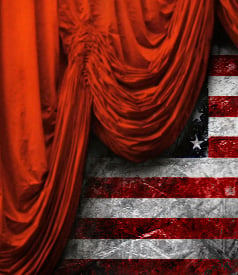 WikiLeaks, Ideological Legitimacy and the Crisis of Empire
WikiLeaks, Ideological Legitimacy and the Crisis of Empireby: Francis Shor, t r u t h o u t | News Analysis
Sunday 02 January 2011
While empires try to maintain their hegemony through economic and military prowess, they must also rely on a form of ideological legitimacy to guarantee their rule. Such legitimacy is often embedded in the geopolitical reputation of the empire among its allies and reluctant admirers. Once that reputation begins to unravel, the empire appears illegitimate.
The establishment of the US empire in the aftermath of World War II built upon its economic and military supremacy. That empire created an architecture of financial and geopolitical institutions that served not only its own interests, but also those of global capital and international legal and democratic structures. There were, of course, myriad contradictions that materialized throughout the earliest cold war period, but much of the West accepted the general framework and ideological legitimacy of the empire. While a crisis of legitimacy emerged around the Vietnam War and the undermining of the Bretton Woods agreement by the Nixon administration, it was not until the end of the cold war and the development of reckless unipolar geopolitics over the last decade that a real decline in US hegemony became apparent.
Given the battered economic and military standing of the United States over the past several years, the hysterical reaction of the American political class over the recent release of State Department cables by WikiLeaks is not surprising. However, it is instructive to note the response of those in the West to such "displays (of) imperial arrogance and hypocrisy" as reported by Steven Erlanger in The New York Times. Erlanger cites an important editorial from the Berliner Zeitung that underscores the question of ideological legitimacy: "The U.S. is betraying one of its founding myths: freedom of information. And they are doing so now, because for the first time since the end of the cold war, they are threatened with losing worldwide control of information."
Commenting in The Guardian on the hypocrisy of the United States, British columnist John Naughton points to Secretary of State Hillary Clinton's January 21, 2010 address about Internet freedom and the remarkable subsequent about-face in denouncing such freedom as practiced by WikiLeaks. Naughton does not spare other officials in the West who have been clamoring for curtailment of such freedom of information on the Internet. As alleged by Naughton: "What WikiLeaks is really exposing is the extent to which the western democratic system has been hollowed out. � And when, finally, the veil of secrecy is lifted, their reflex reaction is to kill the messenger."The abuses heaped on Julian Assange and the threats against him, especially, but not exclusively, from politicians in the United States, reflects this hollowing out of democracy and a fear of the new virtual world of free speech. Writing in the December 11, 2010 issue of the Melbourne Age, Assange's Australian attorney, Peter Gordon, opines: